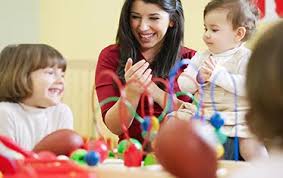How to Discipline a Narcissistic Child? 5 Red Flags About Narcissism in Children
Nouman Bashir
August 19, 2025

How to discipline a narcissistic child?
Are you raising a child who has narcissistic behaviour? Well, this is a painful revelation knowing that you’ve a narcissistic child and it becomes even more worse when you don’t know how to deal with them as a parent.
We all want our kids to be well adjusted, kind and capable. We want them to be gentlemen with thoughtful and sympathetic personalities so they live a productive, happy and successful life.
So what should you do if you’ve a kid with narcissistic traits?
In this blog post, we’ll explain narcissistic behaviour in children and how it is different from NPD. We’ll also discuss what makes a child narcissist and how to discipline a narcissist child.
Introducing Narcissism in Children

Narcissism in children is a mental condition where children develop a sense of importance. They feel more special, fantasize about their successes and prioritize their needs at the expense of others.
Narcissist children show selfishness and consider themself always right. They don’t bear criticism and most often lash out aggressively and even show violent behavior. They’re not kind and empathetic to others.
But is narcissistic behavior the same as Narcissistic personality disorder (NPD)? Let’s find out!
Narcissist Traits Vs. NPD: What’s the Difference?
Most of the time, we confuse a child’s narcissist behaviour with Narcissist Personality Disorder. We don’t differentiate between both and that makes the situation even more worse.
To effectively deal narcissism in your child, you’ve to first understand the difference between Narcissist traits and NPD (Narcissist Personality Disorder)
Narcissism is the sense of superiority where your kid feels important and fulfills his needs at the cost of others. He doesn’t show kindness and care and always thinks about himself. Parents can diagnose narcissism at an early stage and can fix it easily.
Narcissistic Personality Disorder (NPD) is more severe than narcissism. When narcissistic traits span multiple areas of life and for a long time, they result in a more severe form called Narcissistic personality disorder.
We can say that NPD is the worsen or untreated form of prolonged Narcissistic traits in children.
| Narcissist Traits | NPD |
| Temporary behaviour often seen in childhood. | A serious mental disorder. |
| Includes selfishness and attention seeking. | Extreme, long lasting patterns of arrogance and lack of empathy. |
| Can be improved by good parenting, love and responsibilities. | Requires psychotherapy and professional treatment. |
| Kids still show empathy in some situations. | Very little or no ability to feel empathy for others. |
| Usually weakens as kids mature | Persist and become part of personality. |
How a Child Becomes Narcissist?
While Narcissism is very common among children, parents don’t get it at an early stage. They relate it with a child’s tantrums. Ignoring narcissistic behaviour leads to a permanent part of their personality.
These children grow up believing that they are more important than others and deserve special treatment. With this kind of thinking, they don’t care about others’ feelings and emotions.
When parents ignore or not correct their children’ tantrums, it becomes a lasting part of their personality and may result in NPD.
5 signs to know if your Child is Narcissist

While Narcissism is very common among children, parents don’t get it at an early stage. They relate it with a child’s tantrums. Ignoring narcissistic behaviour leads to a permanent part of their personality.
Here are 5 signs that will help you to understand whether your child is narcissistic or not.
- Put Other Children Down
Narcissistic children don’t see it problematic to be critical, rude and mean to other children. They criticize the other children because in their mind, this criticism is true.
When other people talk positively about other children, they feel hurt and jealous. They can’t tolerate others’ success and praise which makes them selfish. Then, they try to put down others.
- Blame Others for their Wrongdoings
Narcissistic children see themselves as trustworthy and competent. They always demand more praise and admiration that makes them feel superior above all.
They struggle to take responsibility for mistakes. So, when a mishap happens, they blame others because in their mind, they are always right.
- Difficulty Making or Maintaining Friends
Narcissistic children struggle in all their relationships, particularly in peer relationships. Children with narcissistic traits may find it difficult to settle into long lasting friendships.
They struggle to make lasting friendships because of their sense of superiority, envy, jealousy and lack of empathy. They think other children can’t meet their level and are incompetent.
- Lack of Empathy
Narcissistic children show lack of empathy which means willingness to hurt others. They are unable to empathize with the emotions and feelings of others.Narcissistic children feel satisfied and happy when they see someone in pain.
Lack of empathy is a common sign in narcissist children because they want constant admiration that boosts their ego and makes them rude and aggressive.
- Inability to accept responsibility
Children with narcissism believe that they are special, brilliant and extraordinary. They think others should obey their wishes and that rule doesn’t apply to them
In their mind, they are always right and when something wrong happens, they refuse to take responsibility. Rather, they blame others and make them feel down.
If you see these signs in your kids then this is the time when you should be careful and seek mental health. Because ignoring these signs may cause prolonged effects on children’ behaviour.
How Parents Create Narcissistic Children?

Narcissism is not merely the result of bad parenting. Still, parenting plays an important role in raising a narcissistic child. If a parent has NPD or narcissistic personality traits, their child may show the same signs.
Parents who praise their child too much and make them feel better than others, often raise a narcissistic child. In contrast, parents who ignore or emotionally hurt their kids may also develop a narcissistic child.
When children feel their parents’ conditional love, they start to believe that their worth comes from success, not from who they are.
5 Tips About How to Discipline a Narcissistic Child
Narcissistic children demand more attention and love which leads towards the lack of empathy, emotions and responsibilities. You can use positive techniques, love and support to discipline a narcissistic child.
Here are 5 tips to consider!
- Learn about NPD: NPD is a complex condition where kids often show self superiority and admiration. As a parent, you should educate yourself about NPD.
When you understand why your kid is behaving like this, it becomes easy for you to handle their behavior. This means set your boundaries and don’t let your children control you emotionally.
- Don’t tolerate abuse: There are different forms of abuse like physical, verbal and emotional. If you take any abuse, narcissistic children learn that it is acceptable and they start to treat others badly.
You should set clear rules like no hurtful words or no shouting and tell your kids that abusive behaviour has consequences.
- Set firm boundaries: Setting clear boundaries is an important step while dealing with narcissistic children. These boundaries don’t mean changing your kids’ behaviour, rather, it helps you to protect your energy and time.
These boundaries also teach responsibilities and self control to narcissistic kids. It also helps in cultivating respectful behaviour in narcissistic kids.
- Avoid treating the child as special. When parents treat their kids special, it brings a sense of superiority in them. Parents should raise their kids with empathy and a sense of responsibilities.
Instead of raising kids as they are more important, you should upbring them by teaching empathy, kindness and responsibilities. This creates a sense of equality and compassion in the kids.
- Accept what you cannot change: People who get NPD are not able to change their behaviour due to its complex nature. So, you can manage your expectations but you can’t force kids to change their behaviour.
You can guide your narcissistic children with love, support and create a respectful environment around them. Accepting this reality also prevents you from frustration and anxiety.
Remember, you cannot change a narcissistic personality. But, by using these tips, you can develop respectful behaviour in your kids and make them responsible.
What Happens if You Ignore Narcissist Traits in Your Child?
When parents ignore narcissistic traits in children, it becomes stronger with time.They demand more attention and feel special which leads them to lack of empathy, emotional connections and selfishness.
A sense of superiority makes narcissists rude, critical and unkind. They criticize other children but when someone speaks good about them, they feel hate, jealousy and envy.
Their jealousy and envy make them bad in all their relationships. They don’t take responsibility for their wrongdoing, instead, they blame others.
When to Seek Mental Health Support?

You need to seek mental support when you diagnose narcissistic traits in your child like feeling proud, aggression, jealousy, hatred and lack of responsibilities. Narcissistic children can’t face rejection or take criticism positively.
Narcissism can take the children to anxiety and depression. If you feel these traits in your child then you should give your children mental health support because anxiety and depression can lead the children to suicide.
You may also want to know:
How to Create a Simple Stay at Home Mom Schedule? That Actually Work for Mom?
Conclusion
Narcissism is a mental condition in children where they feel special, extraordinary and superior to others. Narcissists children consider others incompetent and try to down other kids by criticizing them.
Narcissistic traits can be overcome by putting responsibilities, setting boundaries and giving them unconditional love. But for NPD, you have to take sessions of psychotherapy because NPD is worse than narcissistic traits.



